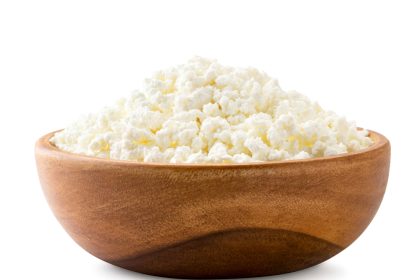Staying active is not just about physical activity or fitness; it plays a crucial role in enhancing cognitive function as well. Recent research has revealed that engaging in any form of physical activity can significantly improve cognitive processing speed, providing a boost similar to reducing one’s cognitive age by four years.
The Power of Real-Time Data Collection
A recent study published in the Annals of Behavioral Medicine utilized innovative technology to gather data from participants in real-time. Over the course of seven days, participants were surveyed five times daily via a mobile app, reporting their physical activity and completing brain games designed to measure cognitive processing speed.
One of the key findings was that common day-to-day activities, regardless of their intensity, can lead to short-term improvements in mental reaction time. This suggests that even light activities like walking to meetings or doing household chores can have cognitive benefits.
How Physical Activity Affects Cognitive Processing
The study involved two brain games. The first was a symbol-search task where participants tapped a matching symbol displayed on their screens. Results showed that participants’ average response times improved after engaging in physical activity. The second game tested working memory, but while participants responded more quickly, there was no significant improvement in accuracy.
The increase in cognitive processing speed observed in participants who engaged in physical activity was about 60 milliseconds, which is equivalent to regaining four years of cognitive processing speed. This finding underscores the importance of incorporating physical activity into daily routines.
The Importance of Everyday Activities
Participants categorized their activities into three intensity levels: light, moderate, and vigorous. Light activities included everyday tasks like walking the dog or cleaning, while moderate activities encompassed brisk walking and non-strenuous biking. Vigorous activities included running and intense cycling.
The study highlights the cognitive benefits of everyday activities, not just structured exercise. Movement, in any form, is beneficial for cognitive health.
The Science Behind the Benefits
Previous research has established that moderate-to-vigorous physical activity is essential for maintaining cognitive health. The current study adds to this body of knowledge by suggesting that even light physical activity can yield cognitive benefits. Higher-intensity exercise is associated with the release of neurotransmitters and improved cardiovascular function, both of which contribute to better cognitive function.
Moreover, the short-term cognitive speed gains observed in the study may be linked to increased blood flow to the brain, particularly the frontal lobe, during physical activity. This enhanced blood flow can lead to improved alertness and readiness to perform tasks, which are crucial for cognitive performance.
5 Practical Tips for Boosting Cognitive Function
- Take Short Walks
Integrating short walking breaks into your daily routine can have a profound impact on cognitive health. Research shows that even a brief walk can increase blood flow to the brain, promoting mental clarity and focus. Taking walks throughout the day helps break up sedentary periods, boosting both mood and energy levels, which in turn enhances cognitive performance. Whether it’s a quick stroll during a lunch break or a walk around the block after a meeting, this simple practice can help reduce brain fog and improve memory retention. - Engage in Household Chores
Household chores like cleaning, organizing, or gardening are not only great for physical health, but they also stimulate the brain. These activities require focus and coordination, engaging various cognitive functions. The repetitive actions involved, such as washing dishes or vacuuming, can provide a sense of accomplishment while simultaneously boosting brain activity. Gardening, in particular, has been shown to reduce stress and enhance cognitive performance, as it combines physical activity with the calming effects of nature. - Use Stairs
Opting for stairs over elevators is a simple yet effective way to enhance both physical and cognitive health. Climbing stairs engages the body and boosts circulation, providing increased oxygen to the brain. This practice can help improve focus and cognitive processing speed. As a bonus, using the stairs regularly can also improve memory function and support long-term cognitive health by stimulating the release of endorphins, which enhance mood and mental clarity. - Join a Class
Engaging in an exercise class like Zumba, yoga, or even dancing provides an opportunity to boost cognitive function while socializing and learning new skills. These activities require both physical and mental effort, stimulating the brain’s neural pathways. Classes often involve memorization, coordination, and rhythm, all of which can enhance cognitive abilities. Plus, the social interaction and sense of community fostered in these settings can help reduce stress, anxiety, and cognitive decline. - Make It a Habit
Consistency is key when it comes to maintaining brain health. By incorporating physical activity into your daily routine, you’re not just improving your fitness level, but also promoting cognitive function over the long term. Whether it’s a morning walk, an afternoon stretch, or a regular yoga session, creating a habit of daily exercise helps keep your mind sharp. Over time, this consistency boosts overall brain health, enhances memory retention, and improves cognitive performance. The more you integrate physical activity into your lifestyle, the greater the benefits for both body and mind.
Conclusion: Move for Your Mind
The findings from this study reinforce the notion that physical activity is not just beneficial for physical health but is also a vital component of cognitive well-being. By integrating more movement into your daily routine, you can enhance your cognitive processing speed and overall brain health. Remember, every little bit counts, so find ways to stay active throughout your day!











